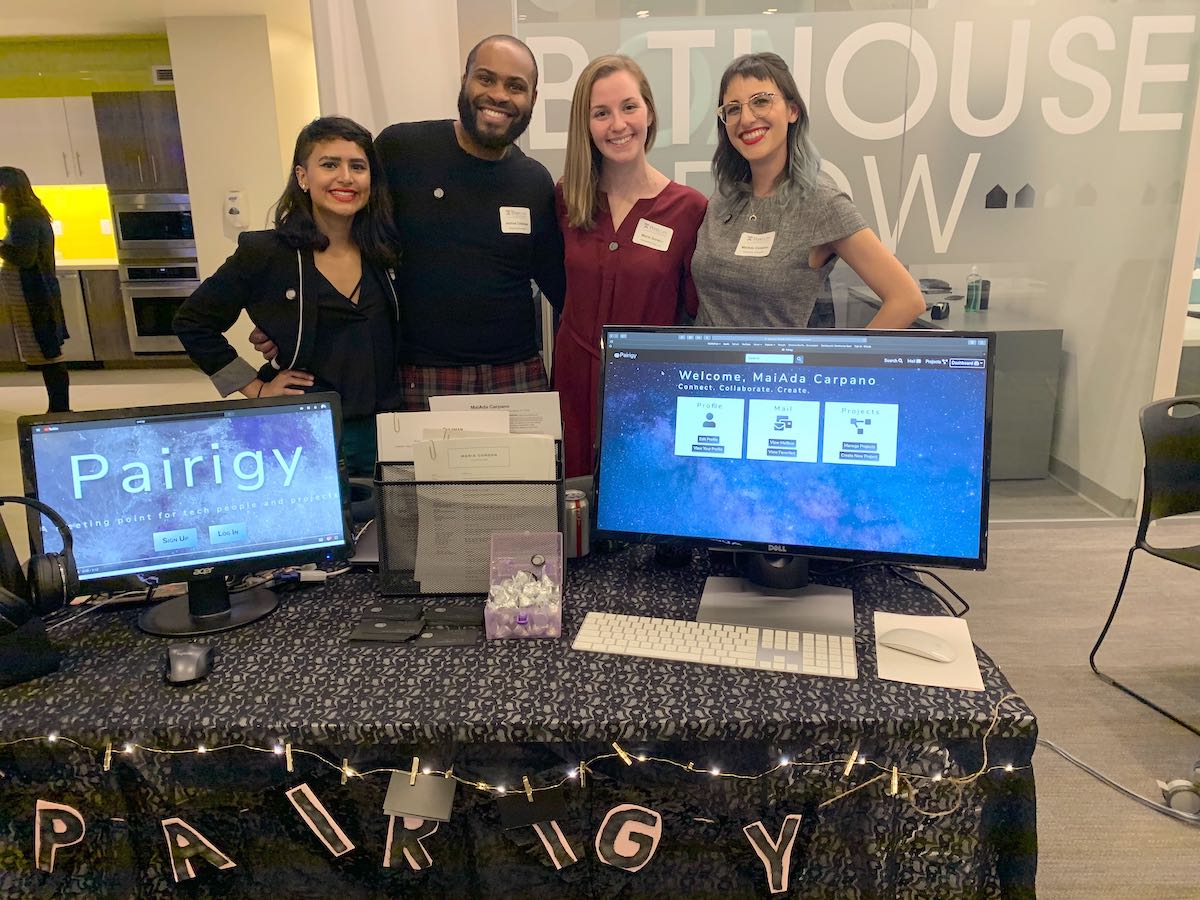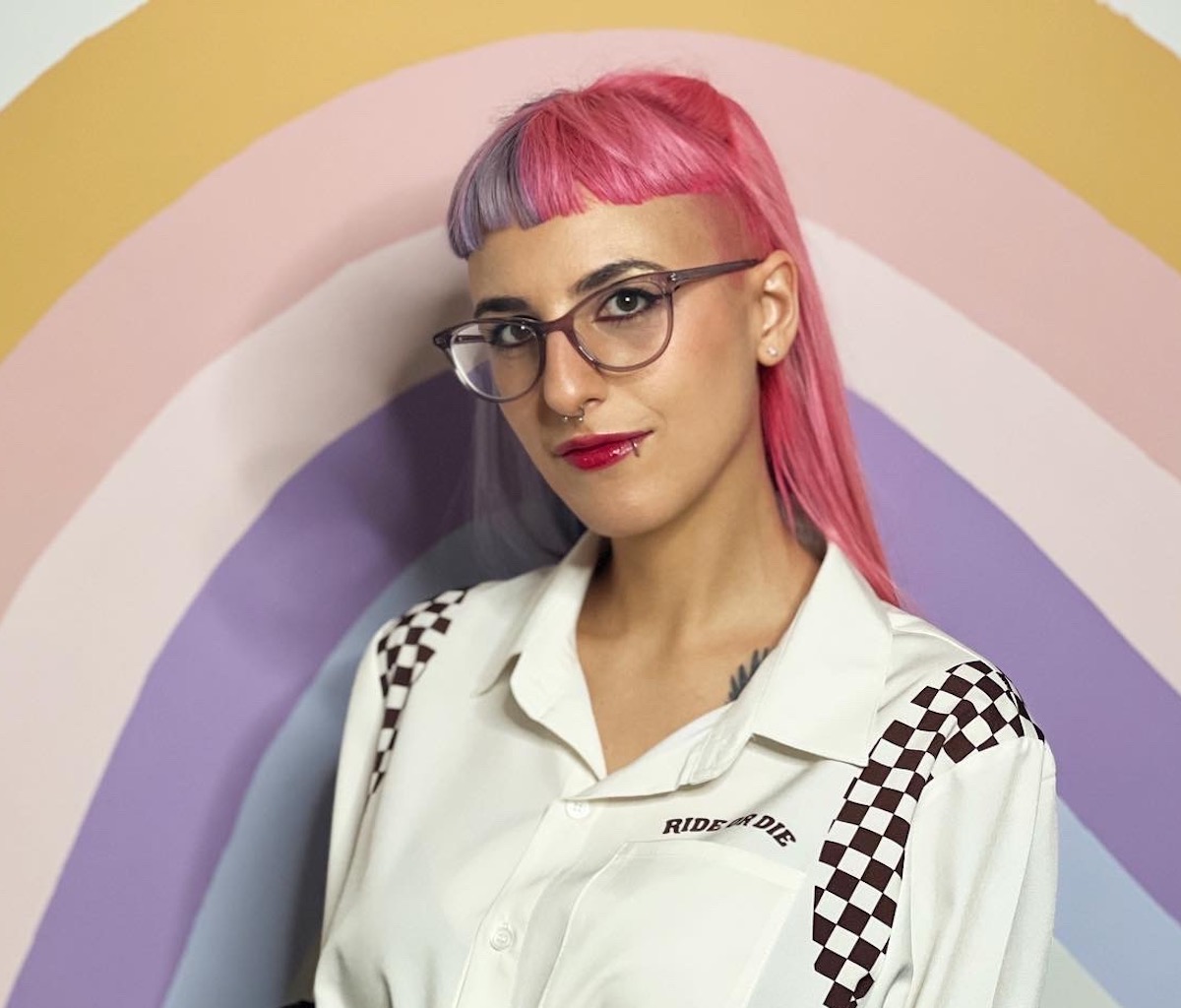Though the last three years have been transformative for plenty of tech pros’ careers, engineer MaiAda Carpano might take the cake for growth.
In 2019, she was leaving her job as a middle school teacher to pursue a career in tech, following a passion she’d held since childhood. She’d taught herself CSS as a hobby when she was younger and decided to pursue a dev career when she realized she didn’t have much room to move up at her school.
“I realized I wanted to be in a career where people would invest in me, and I thought back about what I loved besides teaching and it was building stuff,” she said at a February 2020 Demo Day for the Penn LPS Coding Boot Camp she was graduating from.
Three years — and three jobs — later, Carpano is a senior engineer at a stealth-mode fintech startup. It’s similar to where she got her professional start in engineering in early 2020, a fintech company called Credit Genie. She told Technical.ly how the bootcamp set her up in her career, what she’s learned at each of her engineering roles, and what she hopes for the future of Philly’s tech industry. This interview was lightly edited for length and clarity.
###
Technical.ly: Tell me about your first tech role. What did you hope to get out of it?
MaiAda Carpano: I started there as junior software engineer, it was a small fintech startup, and it was a really cool opportunity to be a part of it. It was unique to come in as someone who had just come out of a bootcamp, I was essentially on the founding team. I was there for almost two years, and in that time, I feel like I really started to come into myself and figure out what type of engineer I was and where my interest lies. The [Penn bootcamp] was full stack, but this role I found myself more in front end.
It was an environment where you’re wearing a lot of hats, and so I was taking on design work, too, and ended up leading initiatives around accessibility. In my background as a teacher, accessibility was a passion of mine and I felt like I could bring this prior knowledge. And I’ve been able to bring that into how I think of engineering projects. It’s made me more versatile with UX experience in general. I had to think so long about how my students would perceive and engage with my lessons, as well as coworking and work culture, and creating a classroom environment where people feel safe, seen and heard. That is something that should be happening in businesses as well.
And what role did you take next, and why?
From there I got opportunity at [Center City-based knowledge management tech company] Guru as UI engineer. It was different; I was going to such a bigger company, and it was much more stable and a kind of later-in-the-game startup. Part of what drew me in was knowing that the lead engineer was an accessibility expert. So working on that team meant I was getting to have somewhat more structured work, have mentorship, and I was learning from someone who’s been in it a long time. Where I was learning on the fly before, it was an environment where you have a whole team and I was the UI person. I got the hone that set of skills.
And you’re recently back at a small startup.
Yes, from there, I swung back around and now I’m in a startup that is very early stages — even earlier than the first one. I came in as a senior engineer. Part of reason I took that opportunity is because to be three years into career and getting to take on a senior position, and work in a space that’s really early stages and a small, close-knit team … I want to continue to be a voice and have a voice in our work. I am a front end engineer, but I am someone who can be advising on accessibility work.

Why did you go the bootcamp route, and what do you feel it added to your tech career?
There’s a couple things. One, having had the environment where you’re learning so quickly every day, learning a new skill, being faced with situation where you’re trying to problem solve, create something, while kind of having zero knowledge to figuring it out — you gain so much. You learn you’re capable, like, ‘Today, I was able to solve it.’ I think that’s one of the biggest things a bootcamp can give you, you learn to fail and try again. I think that’s an aim through your whole career.
You learn new code bases, new tech skills, learn and figure things out, and learn to be able to ask for help. You could have great TAs and teachers, and you need to be sufficient, but know when it’s time to ask for help. The best tech people ask questions when they don’t know the answer, no matter how long you’ve been in it.
What advice would you give to someone looking to make a move into tech from a different career?
I can’t stress enough to find your community and your people. Especially in Philly, I have found — and maybe it’s me getting lucky — I have found so many people who are so willing to teach and share, and the best way to get a job is to come in as a referral, or if you have someone who can vouch for you. I know people who haven’t gone that route, but having a network to plug you into jobs, as people you can rely on when you’re going through that struggle is so important. I don’t think I would be where I am if I didn’t have people to vouch for and advocate for you.
And secondly, impostor syndrome is real. I still feel it, the more your background is nontraditional, or someone from a marginalized community, it can feel hard to overcome that. But it’s normal, and you’re not alone. Everyone has that moment when you’re learning code when you realize it’s out of your scope of problem solving. Everyone has hit that hurdle and they’ve been able to overcome it too. If people are acting like they are not stuck, they’re faking it too. I really want to encourage those people to reach out to their networks and find networks around them that will support them in achieving their goals.







